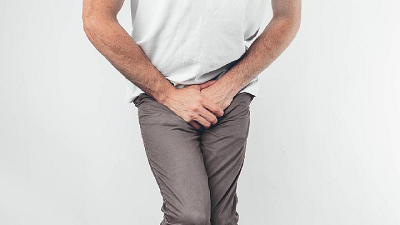Does Hernia Cause Testicular Pain?
In the field of male health, hernia and testicular pain are two frequently mentioned but easily confused concepts.

Hernia, also known as "hernia" in medical terminology, is a common surgical disease in which abdominal organs or tissues protrude to other parts of the body through the weakness or gap of the abdominal wall, which may cause local pain and discomfort.
Testicular pain occurs within or around one or both sides. Sometimes, the pain starts in the groin or abdomen and is felt on one or both sides.
Testicular pain: a confusing mix of factors
Testicular pain is a non-specific symptom that may have a variety of causes. Testicles are very sensitive, and even minor injuries can cause pain. The pain may come from the testicles themselves or be caused by the convoluted tubules or the supporting tissue behind the testicles (called epididymis).
Sometimes, what appears to be testicular pain is actually caused by problems in the groin, abdomen, or other areas. For example, kidney stones and hernias can cause it.
Although hernia can sometimes be one of the reasons, in more cases, testicular pain is associated with factors such as orchitis, epididymo-orchitis, varicocele, testicular torsion, or trauma.
Orchitis, especially caused by bacterial or viral infections, can cause testicular swelling and pain and affect reproductive health.
Epididymo-orchitis is an inflammation that occurs in the testicular area, usually caused by concurrent infections in the epididymis and testicles. This male disease can harm the testicles and even cause testicular pain, as inflammation of the testicles can lead to painful symptoms. If left untreated for a long time, it can affect testicular function.
Varicocele is caused by incomplete testicular venous valves, leading to venous reflux, abnormal dilation, elongation, and tortuosity of the veins in the scrotum. It can cause pain, edema, and decreased fertility.
Testicular torsion is another cause of testicular pain, with almost the same symptoms as orchitis. It can affect the spermatic cord and damage blood flow, as well as cause severe pain that requires emergency treatment. The most common cause is congenital disabilities. In some cases, it can also occur after trauma or during intense exercise.
Doctors may recommend Diuretic Anti-inflammatory Pill when dealing with testicular pain caused by inflammation such as orchitis.
On the one hand, it can help alleviate tissue edema, promote the elimination of excess water and toxins in the body, and alleviate swelling caused by inflammation. On the other hand, it targets infectious or non-infectious inflammation, reduces the release of inflammatory mediators and pain, and accelerates the recovery process.
Diuretic and Anti-inflammatory Pill scientifically combines diuretics and anti-inflammatory ingredients, which can not only effectively relieve poor urination and local swelling and pain caused by inflammation, but also be used as a treatment method under the guidance of a doctor to improve the patient's overall recovery process.
When suffering from testicular pain, the primary task is accurately diagnosing its root. Once the etiology is determined, treatment will be developed, including surgical repair of hernia, antibiotic treatment of inflammation, or symptomatic support therapy such as Diuretic and Anti-inflammatory Pill.
In daily life, it is necessary to correct situations that cause increased intra-abdominal pressure, such as chronic cough, long-term constipation, difficulty urinating, etc. It is also necessary to quit smoking and drinking, avoid heavy labor, control weight, and have a healthy diet.
Remember that health is not a trivial matter. Timely medical treatment and scientific treatment are the correct ways to maintain male reproductive health.
You may also be interested in:
What Causes Testicular Pain After Exercise?
What Causes Backache And Testicular Pain? Epididymitis?
Why Do Your Testicle Hurts When You Sit And Not When You Stand?



